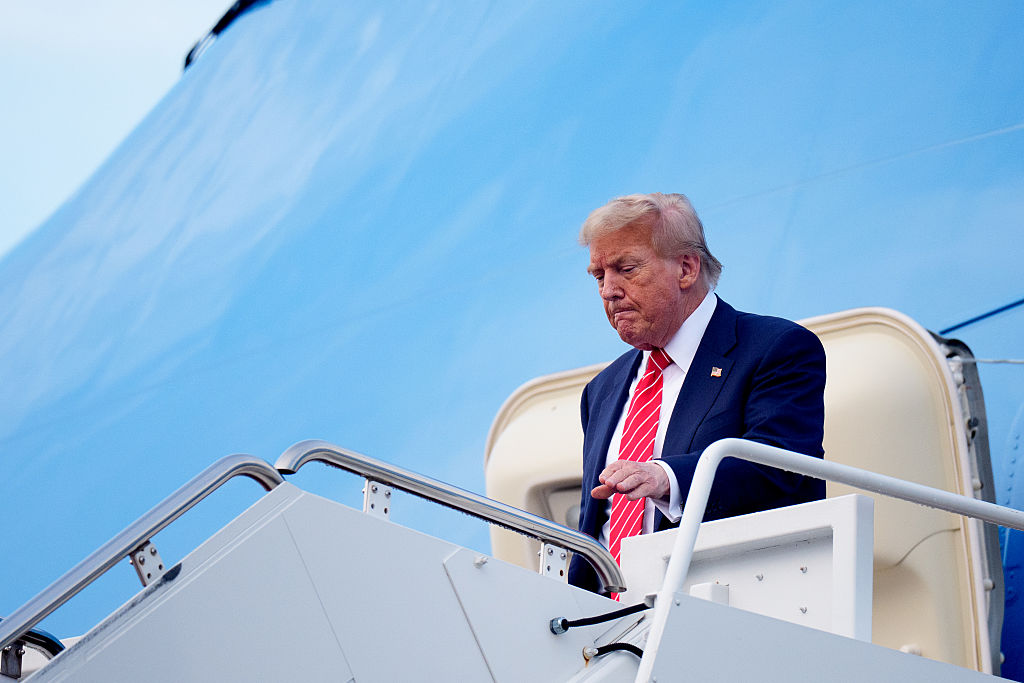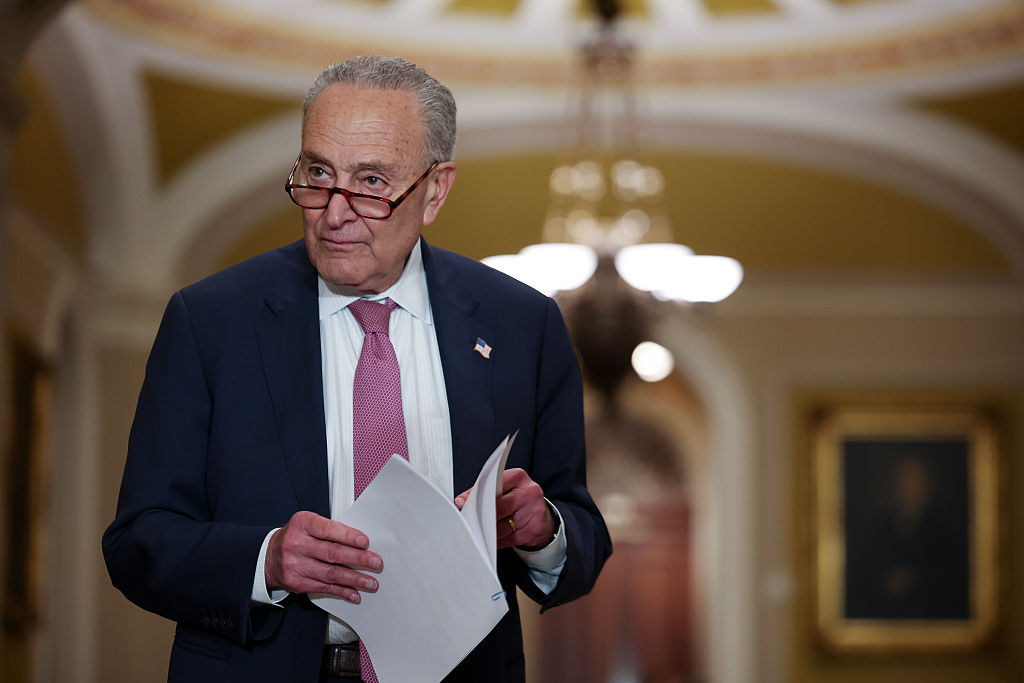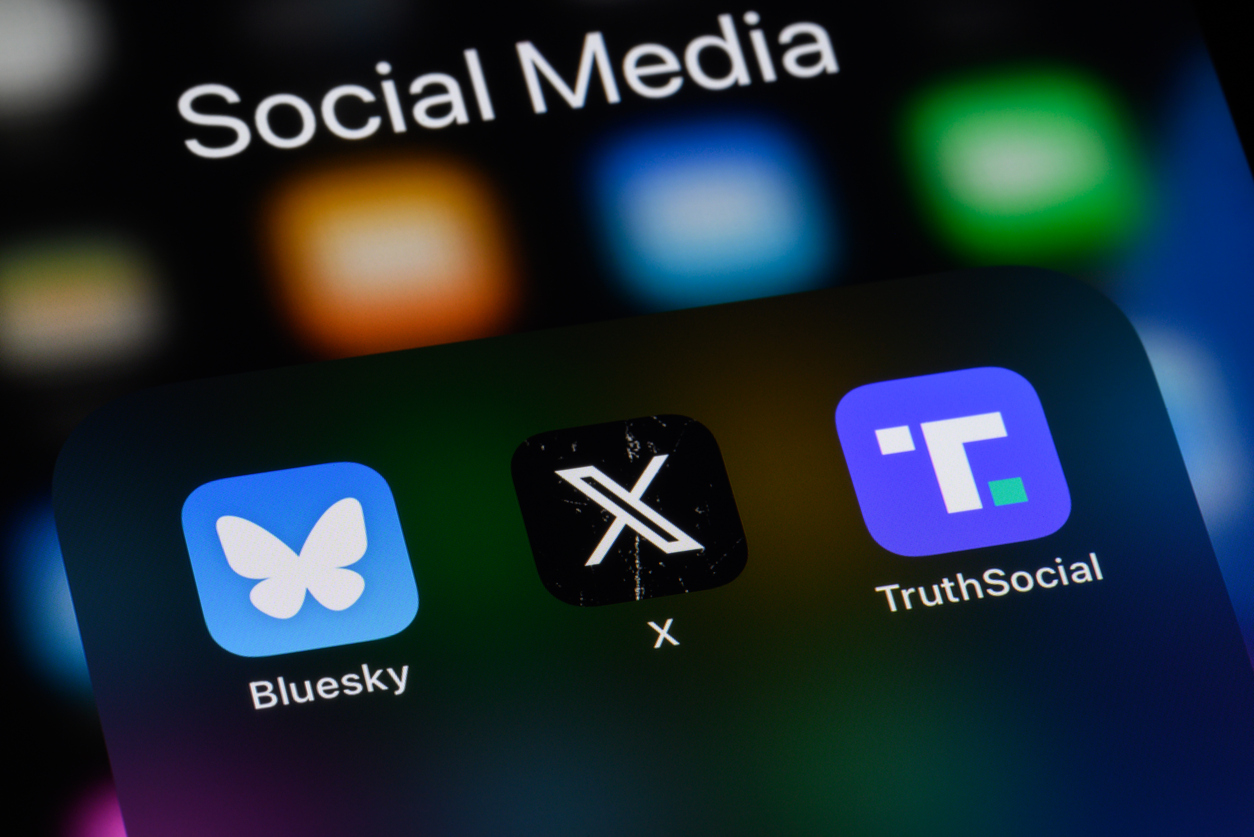“Whoever controls big data technologies will control the resources for development and have the upper hand,” Xi Jinping declared shortly after assuming control of China. In the years since, the Chinese surveillance state has exploded at home and abroad, thanks to espionage-adjacent apps such as WeChat, but none has raised as much ire as TikTok.
Following reams of data showing that your teenager’s favorite app is poisoning their mind and spying on them, the calls to ban TikTok are now coming from inside the House… and Senate. But how would such a ban actually work? What does it mean to ban an app that is supported by the technological infrastructure of the CCP?
Answers to those questions lie in how India blocked the app and how the US government forced the sale of Grindr, a popular gay dating app. The former path would lead to a TikTok-free America; the latter would lead to a CCP-free TikTok.
India successfully banned TikTok, along with dozens of other CCP-controlled digital entities, in 2020, due to complaints that the apps were “stealing and surreptitiously transmitting users’ data in an unauthorized manner to servers which have locations outside India.”
Grindr was owned by Chinese entities until the US-based Committee on Foreign Investment in the United States, or CFIUS, forced its sale to an American entity because of concern that the CCP could access data, such as HIV status, of American users. The consensus among the anti-TikTok crusaders is that a full ban is the only real solution; forcing a sale to a US-based entity would not address all of critics’ national security concerns.
Another country that bans the app apart from India is, perhaps surprisingly, China; it prevents its population from getting high on its own TikTok supply. Inside China’s borders, users are instead offering up a version called Douyin that is closely monitored by the Chinese government. Western studies of the platform show that Douyin offers math and pro-CCP content, while its overseas counterpart, TikTok, provides mindless content that amounts to “digital fentanyl.”
Try to open the app and you are greeted with a message that reads: “TikTok is complying with the ban and that its top priority is protecting the privacy and safety of Indian users.” Since the ban, the app has vanished from the app stores in India, though Indians can use workarounds like a virtual private network, or VPN — a problem that bans in America will likely encounter as well. But most users in India who don’t want to figure out how to download a VPN have successfully been banned from accessing the platform, providing a roadmap for America.
So while TikTok isn’t completely inaccessible from within India’s borders, the country that was once its largest market with well over 100 million users was successful in banning new downloads of the app, and made it impossible for users to access without downloading external software. In the aftermath of the Indian ban, TikTok laid off thousands of employees across its Indian offices. Nikkei Asia reported that “the app is essentially withdrawing from India.”
Federal Communications Commission commissioner Brendan Carr says that “India is a good example.” Carr is one of TikTok’s highest profile critics anywhere in the world. Beyond the all-out ban India implemented, he also presented what could be a back-door way to tackle the app if an all-out ban doesn’t take place.
“There’s sort of two options that get conflated a little bit,” Carr told me. “One is a ban like they did in India. The other is to require a sale or complete corporate decoupling from entities beholden to the CCP. Practically speaking, I think that latter move would result in a ban because I don’t think Beijing would ever agree to losing control of TikTok.”
When Grindr’s Chinese owners were forced to sell, they got a windfall profit as the app was sold not at a fire-sale price but for $620 million after the initial purchase. This is a possibility that’s been bandied about by TikTok opponents as well; the Trump-era idea of forcing TikTok to offload its data into US-based servers through America-based Oracle Corporation is an option reminiscent of the Grindr ownership transfer. In this case, TikTok would still exist, but concerns about communist espionage would be minimized.
TikTok’s fiercest critics think that a CFIUS-forced sale wouldn’t be enough, and that a full ban à la India is the only real path forward. Unlike Grindr, which was never fully run by the CCP during the era of its Chinese ownership, there is virtually no difference between TikTok, ByteDance and the Chinese Communist Party. Even if the app were technically sold to an American entity, its staffing would remain heavily staffed by CCP allies.
Concerns about TikTok aren’t new. Some of its original foes crossed deep partisan lines to convey concerns about the app. Back in 2019, Senators Chuck Schumer and Tom Cotton jointly sounded the alarm about the national security threats posed by TikTok. The two were unequivocal that TikTok’s ownership structure is a problem. Its parent company, ByteDance, is squarely under CCP control, and the duo wrote that “ByteDance is still required to adhere to the laws of China.” Those laws include China’s infamous 2017 National Intelligence Law which requires that “any organization or citizen shall support, assist and cooperate with the state intelligence work in accordance with the law.”
Schumer’s and Cotton’s fears that ByteDance, which is subject to CCP laws, will siphon off data from users in America aren’t just hypothetical. TikTok employees have confirmed in the past that ByteDance “has access to American user data and is actively involved in [TikTok’s] decision-making and product development.”
Since then, former president Donald Trump announced plans to ban TikTok via executive order in 2020; his attempts were blocked by courts, which ruled that the executive branch does not currently have the authority to issue a sweeping TikTok ban.
However, lawmakers led by Representative Michael McCaul, are working to ensure that Biden will have the authority to ban TikTok if and when he decides to. The House is expected to pass McCaul’s legislation that those working on it say would negate the legal hurdles that blocked President Trump from banning the app in 2020. Over on the Senate side, a bipartisan bill that will allow the Commerce Department to mitigate “undue or unacceptable risk” posed by companies like TikTok just won the backing of the White House. Importantly, the bill — called the RESTRICT Act — does not single out TikTok specifically.
Another legal objection that a TikTok ban faces is uniquely American, but likely unfounded: the First Amendment. TikTok’s opponents maintain that there are no reasons to be concerned with any possible First Amendment objections to a ban, because the attacks on the app are not grounded in free speech concerns, but rather those of national security and data privacy.
Some free speech absolutists argue that precedent set by the Supreme Court case Packingham v. North Carolina, which banned sex offenders from using any social media, could prevent a sweeping ban on TikTok itself. However, Joel Thayer, the president of the Digital Progress Institute, thinks that doesn’t hold water. “TikTok is a social media app that passively hosts third-party content,” Thayer wrote. “Merely providing services in the US does not necessarily entitle a company to First Amendment protections.”
Per Thayer, “the First Amendment and the Constitution at large are agnostic to banning TikTok. The decision whether to do so should be made based on national security policy considerations, not misguided constitutional concerns.”
While McCaul’s bill awaits passage, other lawmakers have been laying the ground for a full scale ban for months. One of the first legislative solutions — and the one regarded as the likeliest to pass — to the TikTok challenge is a bipartisan bill led by Representatives Mike Gallagher and Raja Krishnamoorthi and Senators Marco Rubio and Angus King. This bill would, when implemented, cut off TikTok’s ability to conduct commercial transactions in the US; practically speaking, it would require the Apple and Google app stores to delist the app, and would prevent the app from functioning.
Conceptually, it would cut TikTok off in the same way that India successfully did. While diehard TikTok fans in America could still access the app via VPN, the social network, like all other social networks, requires a large network effect to survive.
One of the first legislative victories against TikTok came courtesy of a provision slipped into the must-pass omnibus bill last year. Senator Josh Hawley and Representative Ken Buck, both Republicans, teamed up to pass the No TikTok on Government Devices Act. This provision was even backed by then-Speaker Nancy Pelosi.
Fresh off their legislative win, the Hawley-Buck duo set their sights on a nationwide TikTok ban, introducing a narrower version of what Gallagher proposed that would only ban TikTok itself; Gallagher’s version would ban TikTok and any future iterations.
In January, the pair introduced the No TikTok on United States Devices Act, which strongly resembles the Trump-era effort to force the president to invoke the International Emergency Economic Powers Act, or IEEPA, to “block and prohibit transactions with TikTok’s parent company ByteDance, with stiff penalties for entities that attempt to evade these sanctions.” In terms of enforcement mechanisms, this bill is similar to how Trump tried to invoke the IEEPA via executive order to force a TikTok ban, but was ruled to have overstepped his authority.
However, those working on the Buck-Hawley legislation think that the IEEPA route is the way to go when it comes to actually forcing a TikTok ban, and that it just needs to be done legislatively and not via executive order.
To be clear, despite recent support from high profile Democrats to ban the app like those of Senators Mark Warner and Michael Bennet, not all in the party are on board. In fact, Michigan governor Gretchen Whitmer pointedly refuses to delete TikTok, even going so far as to use a completely separate phone (which is itself an admission that she is aware of the spying concerns, but needs her TikTok fix anyway) for the app. Fortunately for Whitmer, Michigan banned TikTok for state employees, but she got a carveout to continue using it. “It is the typical Whitmer ‘rules for thee, but not for me’ mentality now empowered by the State Legislature,” Representative Bill Huizenga told me about Whitmer’s special treatment.
Within Congress itself, Democrats such as freshman Representative Jeff Jackson freely use the spyware; like Whitmer, Jackson freely admits that he uses a separate phone for getting his sweet communist-created dopamine fix. A TikTok ban would potentially cut off access to his over 500,000 followers.
Last October, President Biden himself actually welcomed dozens of TikTok influencers directly into the White House, even though his staff is banned from using it on White House grounds. Despite Biden’s willingness to welcome TikTokkers into the White House, his administration is working, albeit somewhat slowly, to ban the app in limited ways. For example, the administration is finally rolling out its full ban of TikTok use on government devices.
In recent weeks, TikTok’s public-facing moves are a clear indicator that the company thinks it’s in trouble, despite the White House’s previous embrace of its users. It’s bought pricey banner advertising in Politico and Axios‘s morning newsletters that seek to reassure DC’s insider class that TikTok is actually deeply concerned about free speech and safety. “To ensure everyone feels safe to freely express themselves, TikTok has made it easy to control many aspects of the in-app experience,” one of its ads reads.
Beyond its ad campaigns in DC newsletters, TikTok is also rolling out fairly meaningless reforms to the app. Teenage users now automatically have access capped at one hour a day unless they enter a password which will give them more access. However, even if TikTok were to successfully limit daily use to one hour, studies have increasingly showed that the app starts pushing harmful content to users within minutes, not hours.
“The non-profit Center for Countering Digital Hate found that it can take less than three minutes after signing up for a TikTok account to see content related to suicide and about five more minutes to find a community promoting eating disorder content,” CNN reported.
Despite the growing momentum for a ban, it’s not all fun and games for the anti-TikTok side. Some lawmakers acknowledge that banning TikTok can put them at odds with their own family members. Representative Kelly Armstrong of North Dakota told me that he’s “fine with banning TikTok,” but added that his kids may not be on board just yet. “I have a fifteen-year-old and a twelve-year-old, we have these debates, and anybody who would see me fight with my kids about TikTok would have never hired me as a criminal defense attorney.”
If and when Republicans and Democrats come together to ban TikTok, it’s clear that they don’t want this to be the end of countering China.
“I worry a little bit that TikTok has become like the Chinese version of Section 230,” in that “it’s a shiny object that everybody can talk about,” Armstrong said. That’s exactly why he warns about staying on top of the threats posed by communist China after a ban would go through on TikTok.
“I don’t want us to spike the football after we went into the endzone when we’re still down by thirty-five points,” Armstrong warned.

























